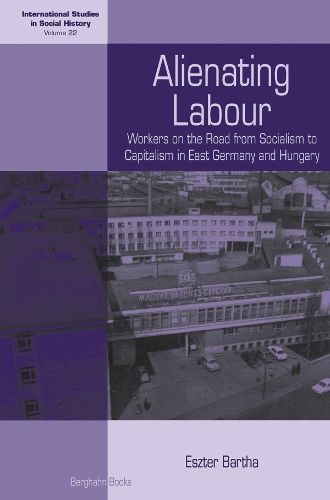Readings Newsletter
Become a Readings Member to make your shopping experience even easier.
Sign in or sign up for free!
You’re not far away from qualifying for FREE standard shipping within Australia
You’ve qualified for FREE standard shipping within Australia
The cart is loading…






The Communist Party dictatorships in Hungary and East Germany sought to win over the "masses" with promises of providing for ever-increasing levels of consumption. This policy-successful at the outset-in the long-term proved to be detrimental for the regimes because it shifted working class political consciousness to the right while it effectively excluded leftist alternatives from the public sphere. This book argues that this policy can provide the key to understanding of the collapse of the regimes. It examines the case studies of two large factories, Carl Zeiss Jena (East Germany) and Raba in Gyor (Hungary), and demonstrates how the study of the formation of the relationship between the workers' state and the industrial working class can offer illuminating insights into the important issue of the legitimacy (and its eventual loss) of Communist regimes.
$9.00 standard shipping within Australia
FREE standard shipping within Australia for orders over $100.00
Express & International shipping calculated at checkout
The Communist Party dictatorships in Hungary and East Germany sought to win over the "masses" with promises of providing for ever-increasing levels of consumption. This policy-successful at the outset-in the long-term proved to be detrimental for the regimes because it shifted working class political consciousness to the right while it effectively excluded leftist alternatives from the public sphere. This book argues that this policy can provide the key to understanding of the collapse of the regimes. It examines the case studies of two large factories, Carl Zeiss Jena (East Germany) and Raba in Gyor (Hungary), and demonstrates how the study of the formation of the relationship between the workers' state and the industrial working class can offer illuminating insights into the important issue of the legitimacy (and its eventual loss) of Communist regimes.